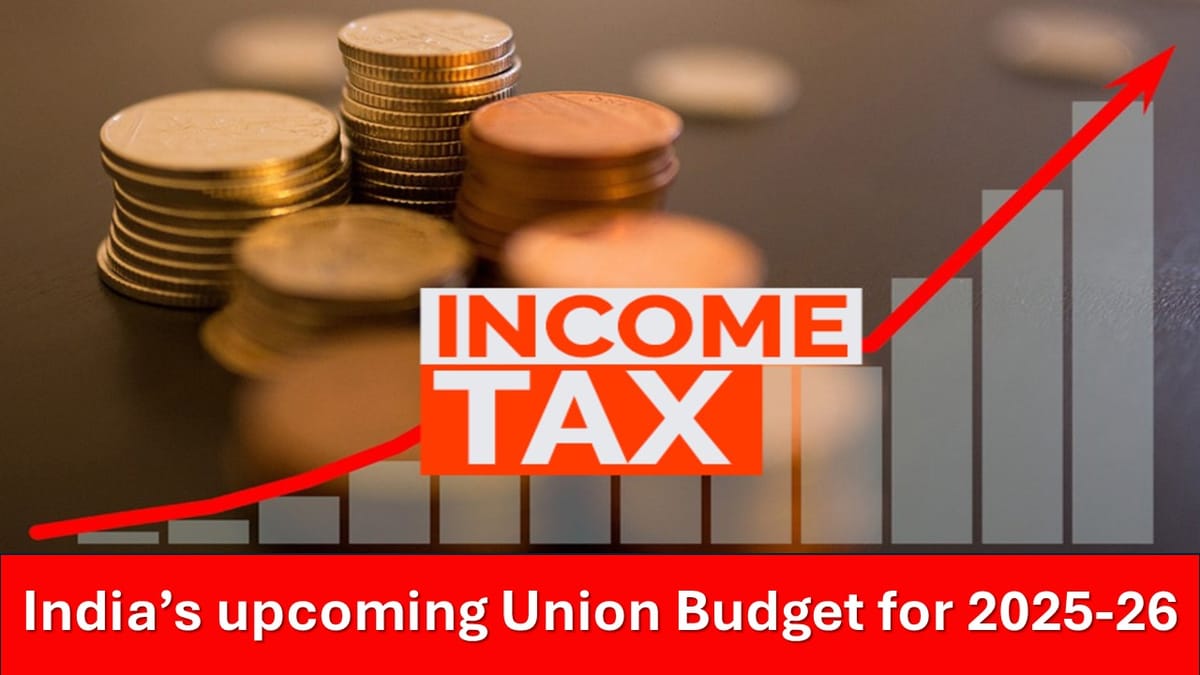India’s upcoming Union Budget for 2025-26 is expected to bring sweeping changes to the Income Tax Act, aiming to simplify the tax filing process for citizens and businesses alike
Anisha Kumari | Nov 16, 2024 |

Budget 2025 plans for income tax reforms to ease the filing process for citizens
India’s upcoming Union Budget for 2025-26 is expected to bring sweeping changes to the Income Tax Act, aiming to simplify the tax filing process for citizens and businesses alike. Sources within the Finance Ministry indicate that these reforms focus on making tax compliance easier, enhancing the efficiency of tax structures, and ultimately promoting a more business-friendly environment. The proposed measures reflect the government’s long-term commitment to fostering economic growth by easing financial burdens for taxpayers.
Simplifying a Complicated Tax System
India has one of the most complicated systems of taxation, posing significant challenges for taxpayers of all categories, including companies. Income tax returns, for example, take a lot of time. Individuals use 2-3 hours up to two days to file their returns, whereas for a small business, it takes an entire week. A mid-sized firm will take a month to file, and a large firm will take as long as a month or two to file taxes, considering all the complexity of their operations. Other than income tax, filing GST can be pretty cumbersome, taking businesses from 15 days to more than a month, with some audits taking months in the run.
Chartered accountants and tax experts argue that excessive complexity in tax forms and compliance requirements has heightened the workload and responsibilities for tax professionals, who are forced to exercise great caution to avoid errors. This burden extends to both income tax and GST returns, further reinforcing the need for streamlined processes.
A Step Towards Simplicity and Ease
The risk of non-compliance with income tax filing can be daunting to most individuals and businesses. Over recent years, the government has been working on reforms to reduce the anxiety associated with tax filing. For example, the faceless assessment scheme that became effective in April 2021 aimed at minimizing the role of direct human involvement in tax disputes and assessments by assigning the cases to officers under different locations to ensure fairness and transparency.
The upcoming budget is likely to continue implementing similar measures to reduce the daunting nature of the exercise of filing taxes. A core objective would be to make tax brackets easier and tax rates lower, thus making it more accessible. Simplification of the tax structure, especially by reducing the number of tax slabs and the rate of corporate taxes, will make India even more attractive to global investors. Lower corporate taxes would encourage businesses to reinvest in the economy, thereby creating jobs and fostering industrial growth. The government also aims to provide more relief to middle-income groups as well as small businesses in the economy, which are considered extremely important in boosting India’s post-pandemic economic recovery.
Widening the Tax Net
More citizens are now encouraged to file taxes. India has been grappling for several years with the challenge of a narrow tax base because a large portion of the population operates outside formal financial structures. The Finance Ministry is now looking into ways of using advanced data analytics to track financial transactions more effectively, thereby catching tax dodgers.
Integrating the informal economy into the formal sector and expanding digital payments are important aspects of this strategy. Growing digital financial transactions would make it easier for authorities to track such transactions, which supports the objective of financial inclusion. It also aligns with the government’s goal of involving as many citizens as possible in the formal sector, thus increasing the tax base while enhancing potential revenue.
Balancing Taxpayer Relief with Revenue Generation
While the reforms promised under Budget 2025-26 primarily benefit the middle-income taxpayer, the Ministry of Finance needs to ensure that government revenue remains strong enough to support ongoing essential funding for infrastructure, healthcare services, and social welfare programs. Balancing taxpayer relief with sustainable revenue generation will have crucial implications for medium-term economic growth and continued public service delivery.
Budget 2025 appears to put India on the path toward a streamlined, efficient tax system that not only facilitates compliance but also fosters business growth and expansion. Thoughtful reform by the government is set to create a fair and progressive tax landscape, addressing long-standing challenges faced by taxpayers across the country.
In case of any Doubt regarding Membership you can mail us at [email protected]
Join Studycafe's WhatsApp Group or Telegram Channel for Latest Updates on Government Job, Sarkari Naukri, Private Jobs, Income Tax, GST, Companies Act, Judgements and CA, CS, ICWA, and MUCH MORE!"